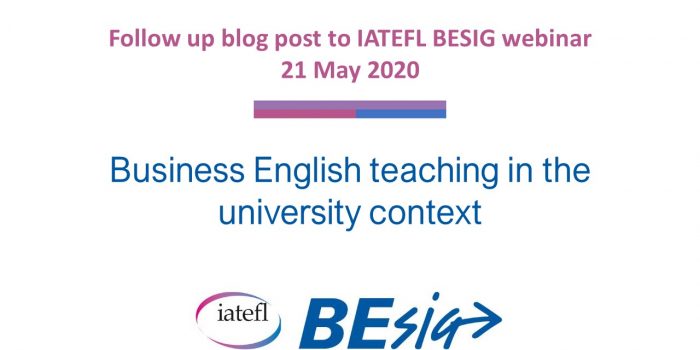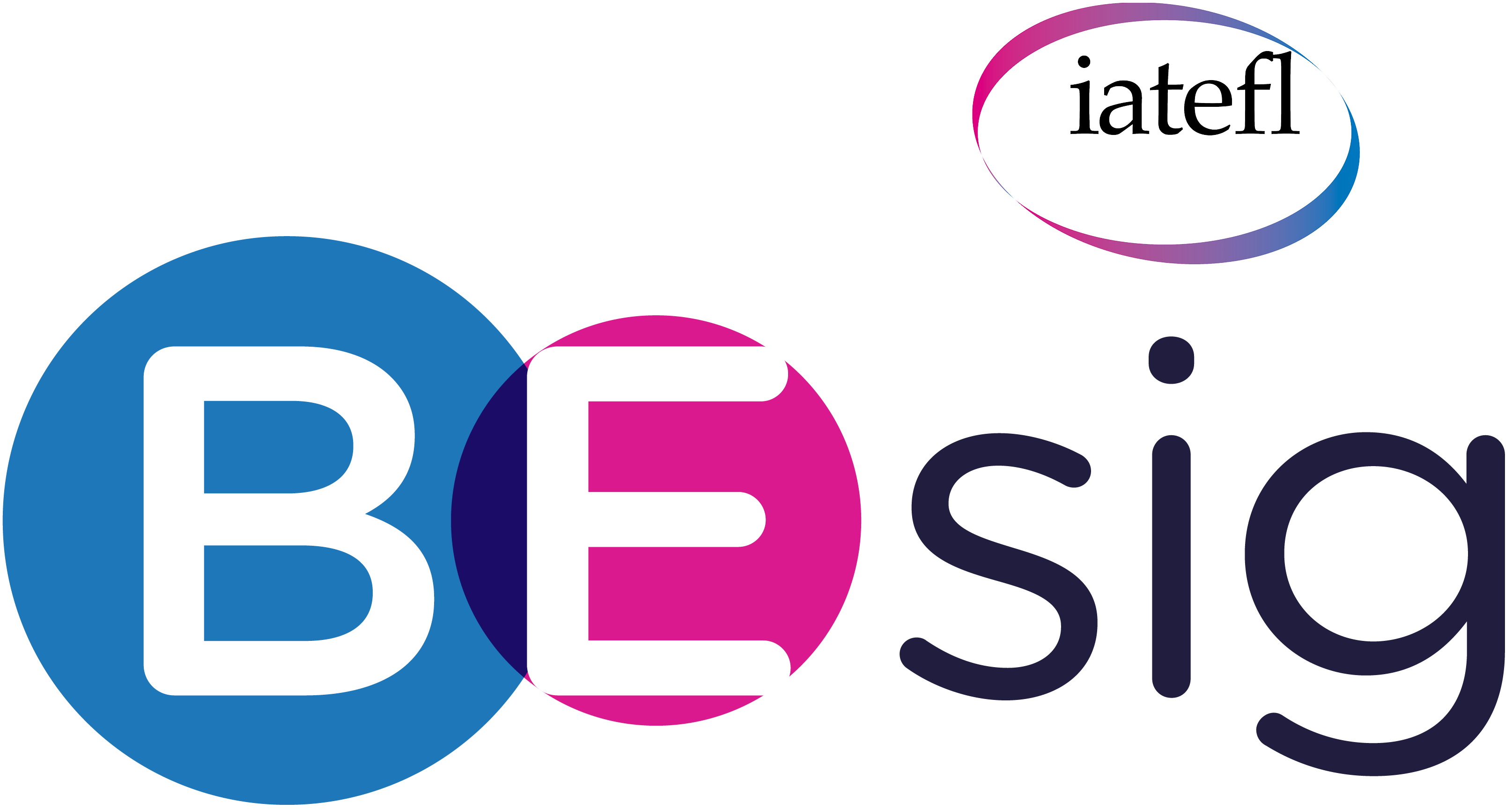
Follow up blog post to BESIG webinar 21.5.2020
Starting from the premise that business English training often occurs in companies with the purpose of supporting working people to do their jobs in English, how is BE teaching adjusted to meet the needs of learners with little or no work experience? And so the discussion began with the importance and relevance of soft skills training within BE classes at university. There was clear agreement that communication skills are an inherent part of what BE teachers / trainers focus on. As one of the key 21st century life skills, getting students to communicate well and clearly is a must. Indeed, can we even separate “business English” from “Communication skills” anymore?
We delved into what a BE teacher needs in order to effectively do their job within a university: strong academic qualifications, willingness to understand the different parts of the faculty and openness to collaborate with subject specialists, knowledge about testing and assessment – at least in theory if not in practice!
These all seemed fairly common in essence in all four of our represented countries: Mexico, Hungary, France and Germany.
As is inevitable today, thoughts turned to the shift to online teaching. Ian McMaster asked if students’ communication skills can be as effectively trained online as face-to-face. The consensus was it depends! While it’s too early to judge fairly, there were mixed thoughts about the value of non-verbal communication that happens in and around class and the creativity having to move online offers. Having a pre-existing, “real” world relationship with students seems to be smoothing the road to online classes. Getting to grips with modern communication tools during studies also prepares students for what they may encounter in the workplace.
Yuliya raised the question about how many hours teachers are required to teach a course. It seems to vary greatly across the board, and is also dependent on the purpose of a particular course for a certain group of students: are we teaching general business English to lower level proficiency students or ESP to C1 level international business students? Are there grade requirements? Is participation voluntary?
Mushtakhusen raised question of teaching techniques / methods and topics covered in BE at university. As is ever the case, methods are mixed and dependent on individual teacher’s preferences. Task-based learning works well in getting students collaborating and independently exploring; it also supports content-based instruction in that a task can be centred around a particular subject. For other groups of students, a teacher may take a lexically-focused approach, introducing vocabulary according to business function: human resources, finance, logistics, marketing etc.
Assessment – probably the most important difference between in-company training and university teaching – was keenly discussed. End of semester / year exams remain generally as a summative form of assessment. Increasingly, course work and portfolio assessment offering ongoing formative assessment is becoming more popular. As BE is so heavily focused on communication, oral testing features heavily as part of student assessment – presentations are probably the number 1 solution. Negotiation roleplays can also be an alternative to presentations. Case studies also lend themselves nicely to both practising various BE topics and for testing students’ knowledge – if anyone can recommend resources where case study material can be accessed, that would be great!
Talking of resources, here are the links that were shared during the chat in case you missed them:
https://besig.iatefl.org/events/online/
https://besig.iatefl.org/membership-preview/resources-2/
https://besig.iatefl.org/conference_collection/
https://besig.iatefl.org/blog/
http://lindsayclandfield.com/portfolio/projects/crib-notes-cheating-copying-and-dictionaries/
Also, be sure to get your copy of the next Business Issues which features an article about Business English teaching in university. Meanwhile, we are looking at a date for a continuation of this discussion. Watch this space!
Prepared by Michelle Hunter
P.S. The recording of the panel discussion is available to IATEFL BESIG members here.



